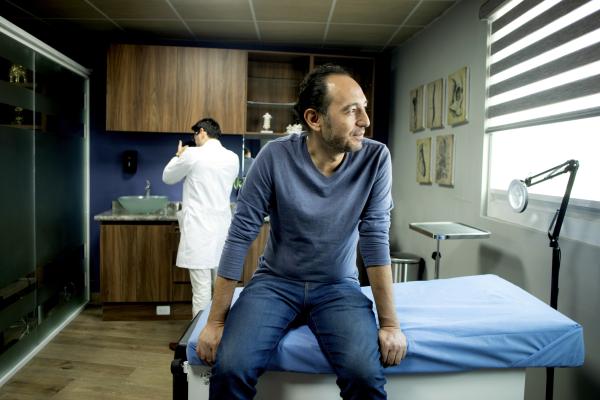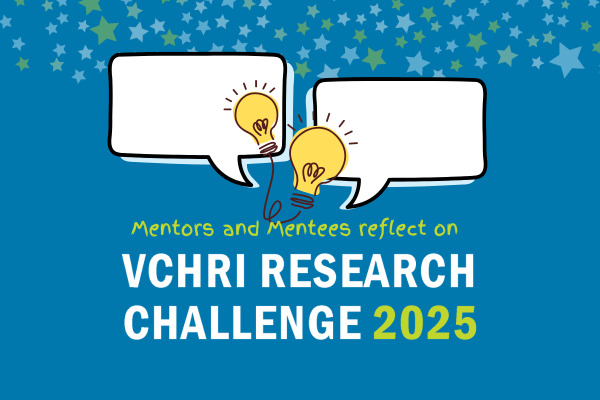
Striving to improve the lives of individuals with mobility disabilities, MATTERS Lab pioneers assistive technology research to help adults fully participate in daily life.
In Canada, 10.6 per cent of individuals aged 15 and over have a mobility disability — meaning they experience difficulty or an inability to walk for 15 minutes without resting. At the Mobility Assistive Technology Evidence of Rehabilitation Science (MATTERS) Lab, researchers are harnessing digital innovation to transform care for this population.
Led by Vancouver Coastal Health Research Institute researcher Dr. Bill Miller, the MATTERS Lab investigates the causes, epidemiology and rehabilitation of mobility disability with the goal of improving quality of life and promoting greater independence.
“Many of our interventions emphasize increasing mobility self-confidence, which encourages social participation."

Expanding rehabilitation access to remote communities
Rehabilitation is a critical part of recovery for people who have experienced a stroke — particularly when mobility is affected. For individuals living in remote or underserved areas, however, accessing therapy can be difficult.
PhD student Isabelle Rash is exploring how a novel technology called Smart Mirror could transform telerehabilitation. This interactive mirror allows therapists and patients to connect in real time, with added benefits: it displays exercise videos while showing patients their own movements, supporting guided and personalized sessions at home.

“Our research explored the feasibility of a Smart Mirror prototype as a solution to the limitations of videoconferencing on traditional devices,” explains Rash. “By bringing tailored rehabilitation closer to remote communities, this technology has the potential to improve long-term lower extremity mobility outcomes.”
Another study on augmented rehabilitation conducted at the lab led to the development of an e-health program, designed to support individuals with lower limb amputations living in remote communities. Lower limb loss is a distressing experience that brings psychological, physical and social challenges. Access to educational materials is essential to help patients build coping skills and confidence, ultimately improving outcomes and quality of life.

Incorporating peer support into rehabilitation enhances the social and engaging aspects of the recovery journey. Building on the success of the initial grant, the lab secured funding from the Canadian Institutes of Health Research for a randomized clinical trial to evaluate the SMART program’s effectiveness in older adults.
Building better assistive devices for life and leisure
Community collaboration is key to the MATTERS lab work. In a recent study with the RAD Society, researchers explored how Recreational Adaptive Devices (RAD) — such as adaptive bikes, skis or kayaks — can enhance physical, mental and emotional well-being.
The team developed a recreational assistive device loan program to reduce financial barriers and help individuals with mobility challenges engage in outdoor activities.

“Providing low-cost rental options could help lower the financial barrier to an independent, active and outdoor lifestyle.”
The lab is also exploring the potential of 3D-printed prosthetic sockets as faster, more affordable alternatives to traditional sockets. Using gait and balance tests, researchers found that 3D-printed sockets performed comparably, offering promising applications in remote and low-resource settings.

“Our research spans a wide range of topics united by the goal of improving mobility and social participation,” explains Miller. “Our location at the G.F. Strong Rehabilitation Centre, which specializes in amputation and rehabilitation, enables us to study the real-world challenges people with mobility disabilities face and find meaningful, practical solutions.”
Learn more about research underway at MATTERS Lab.
"Behind the Lab Doors” is a Research Insider series that offers a behind-the-scenes glimpse into the labs of health researchers across VCHRI. These stories explore research currently in the works, including ongoing and long-term studies that have the potential to directly impact the quality of patient care and clinical conditions. To see your VCHRI-affiliated lab featured in an upcoming article, contact us at vchricommunications@vch.ca.


